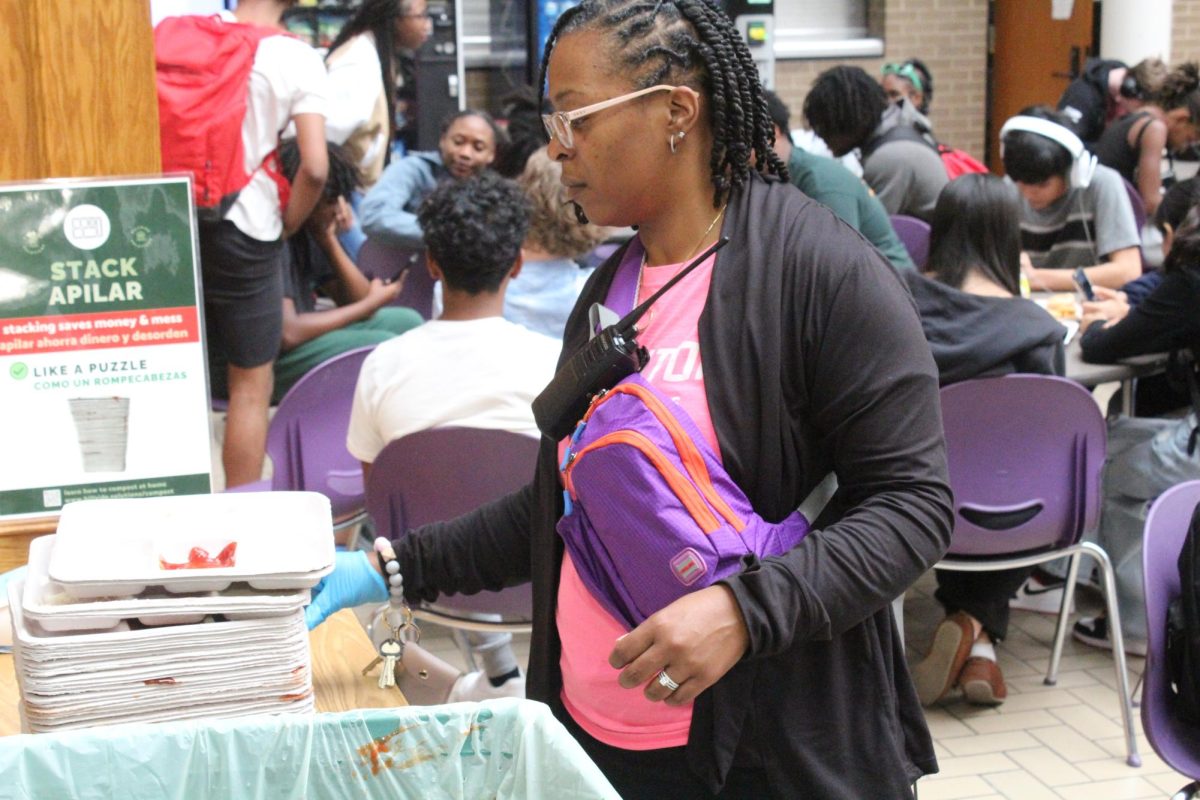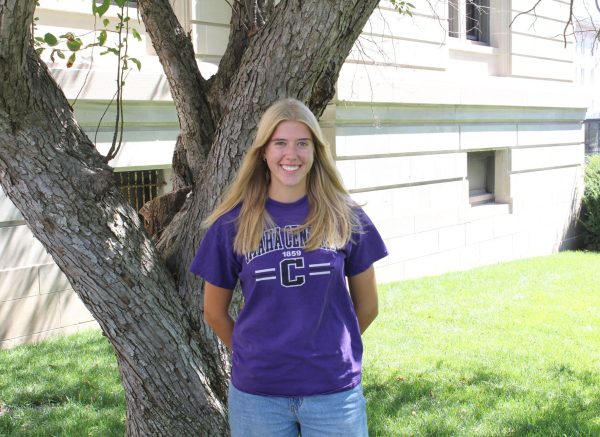Composting has been implemented in the lunchrooms at Central High School with the help of Junior Evalina Sain and alumna Chlöe Johnson, who argued the program was needed to address Central’s contributions to the climate crisis.
This program was established through a contract between Omaha Public Schools and local waste management company Hillside Solutions. Through the firm, Central students sort their waste by throwing non-compostable items in the trash can and compostable items in green bins marked by a sign.
Omaha South High School began composing in March 2023 after advocacy from Mia Perales, a former senior at South. She worked with the South administration and OPS to implement composting at the high school, which is the largest in Nebraska. Perales discussed her experiences implementing composting at Students for Sustainability, a student-run climate advocacy organization. Perales’s involvement in Students for Sustainability, a group that both Sain and Johnson are a part of, inspired them to take on their own journey of implementing composting at Central, with the same process of reaching out to the administration and OPS.
The process consisted of five months of advocacy beginning in early March. The idea of composting was communicated between the school administration, district administration and Hillside Solutions. Seven in-person meetings were conducted with various people, which had representatives from the district, including Monica Green, OPS director of equity and diversity; Ayanna Boykins, OPS director of economic inclusion and workforce development; Central Principal Dionne Kirksey; OPS Interim Superintendent Matthew Ray and Brent Compton, the director of partnerships with Hillside Solutions.
They discussed logistics, the aesthetics of the compost bins, the cost and how the system would work. Finally, this program was approved by Central’s administration and the district representatives, and the contract was sent to the OPS’s Legal Counsel over the summer. During July, Sain said there was no communication between her and representatives from the district about the proposed composting program in the 2023-2024 school year. After the lack of communication, Sain advocated for herself and went to the school to ensure the contract was still in the process. When the contract was signed off, implementation began.
To implement composting, educating the student body needed to be accomplished. At the beginning of the school year, during student’s Advisement, or “Eagle Time,” the idea of composting was introduced. During lunch periods, teacher lunch aids monitored the bins to make sure the students were composting. The Central Green Team, an organization of Central students founded by Sain and dedicated to promoting sustainability at the school, will be involved in the future to better the program itself.
“It was illogical that Central was not already composting,” Sain said. Central has been using compostable trays since the switch between plastic and paper trays. Central produced 300 pounds of food waste a day, equivalent to 27 tons per year, according to an analysis conducted by Hillside Solutions in April 2023. The compostable trays stacked were 16 feet tall each day, and within a school year, that stack was taller than the Burj Kalifa, the tallest building in the world.
With the composting program in place, 57% of previous trash is being diverted to compost, according to an estimate from Hillside Solutions. The waste management firm projected that the composting program would cut the school’s plastic bag use by 80 percent, saving Central over 11,000 plastic bags per year.
Food waste in landfills affects the planet’s air and water. Food scraps at the landfill produce a gas called methane, a greenhouse gas that contributes to climate change. Additionally, there is a lot of water in food, and when this water combines with other items in the landfill, a toxic sludge called leachate forms. Leachate leaks into groundwater, dirtying lakes and rivers. Composting food scraps can save space in the landfill and avoid methane gases and leachate.
















Noa Gilbert • Sep 28, 2023 at 4:31 pm
Fantastic story! Vivid and relevant detail.